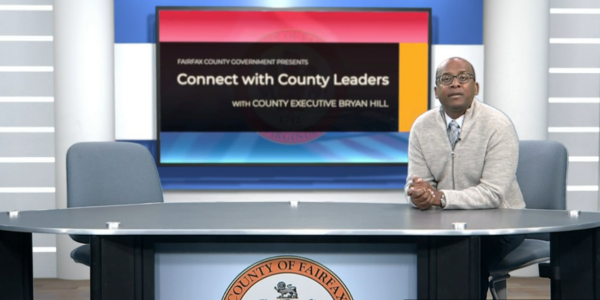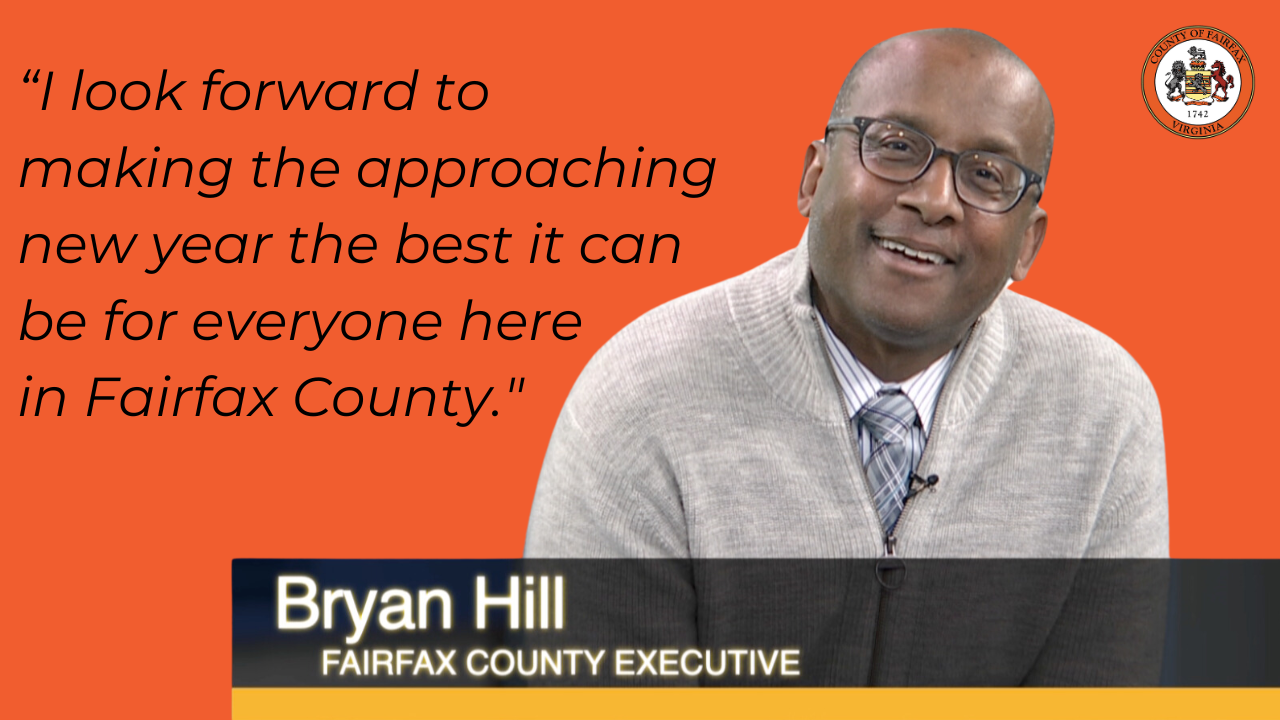
Bryan Hill’s year-end edition of “Connect with County Leaders” showcased conversations with key leaders across Fairfax County throughout 2024, highlighting innovations in governance and community service.
These conversations demonstrated Fairfax County’s commitment to innovation, equity and community service across multiple sectors, setting ambitious goals for continued progress in 2025.
WATCH
January: Public Safety Innovation
Police Chief Kevin Davis and Fire Chief John Butler discussed the county’s co-responder model, pairing officers with mental health clinicians. Davis reported “1800 calls for service” handled by four co-responder teams, with half resolved on-scene. Butler emphasized equitable service delivery: “Risk reduction is also an equity connection... It should not matter where in the county you live.”
February: Economic Development
Victor Hoskins highlighted Fairfax County’s $134 billion GDP, representing half of Northern Virginia’s economy. Business establishments grew from 36,000 to 43,000 post-pandemic, with open positions increasing from 15,000 to 58,000. Rebecca Moudry emphasized equitable growth through targeted project planning and strategic partnerships.
March: Mason District Development
Supervisor Andres Jimenez outlined initiatives to transform Mason District into a cultural destination, launching art programs and supporting small businesses. He stressed community integration: “One Fairfax needs to be integrated in everything we do.”
April: Animal Services
Animal Shelter Director Reasa Currier detailed the successful launch of the Lorton facility, drawing 1,000 visitors on opening day. New programs include children reading to shelter pets and expanded pet food pantry services through community partnerships.
May: Public Safety Achievement
Braddock District Supervisor James Walkinshaw highlighted Fairfax’s status as America’s safest large jurisdiction, noting their violent crime rate is half that of comparable jurisdictions. He addressed the challenge of maintaining public confidence amid media narratives about crime.
June: Homelessness Solutions
Shelter House Executive Director Joe Meyer advocated for permanent supportive housing: “When I’m talking about affordable housing, I’m talking more about housing for all.” He emphasized cost-effectiveness compared to emergency services and incarceration.

July: Emergency Communications
Scott Brillman previewed next-generation 9-1-1 services incorporating video calls, text messaging, and AI-powered translation for 170 languages. The system will integrate data from connected devices to enhance emergency response.
August: Leadership Insights
Providence Friars men’s basketball coach Kim English shared perspectives on personal growth: “Find something you love to do, and really go after it... It’s never too late in life to change course and pursue your dream.”
September: Public Health Education
George Mason University President Gregory Washington explained accelerating the college of public health’s establishment during the pandemic: “The propagation of COVID-19 in this country and in our region was not just a medical issue. It was a public health issue.”
October: Election Security
Registrar Eric Spicer detailed election integrity measures: “Yes, it is safe. Yes, it is secure,” emphasizing multiple verification steps and systematic checks throughout the voting process.
November: Legal Access and Athletics
Circuit Court Clerk Chris Falcon discussed improving court accessibility through satellite services and supporting legal representation in civil cases. George Mason University Basketball Coach Tony Skinn defined “Patriot Pressure” as community engagement and home court advantage: “The more pressure we could put on our opponents, the louder that place can get.”
Connect With County Leaders Podcast
Through these wide-ranging conversations, the “Connect with County Leaders” podcast with Fairfax County Executive Bryan Hill demonstrates Fairfax County’s commitment to innovation, equity, and community service across multiple sectors.
The discussions not only highlighted current achievements but also set ambitious goals for continued progress in 2025 and beyond. Each guest brought unique perspectives and initiatives that collectively paint a picture of a dynamic, forward-thinking county government actively working to improve the lives of its residents.
Listen or watch past episodes of “Connect with County Leaders” on SoundCloud, on YouTube and on Channel 16’s podcast on demand page. For other Fairfax County podcasts, visit www.fairfaxcounty.gov/podcasts, and for additional audio content, tune in to Fairfax County Government Radio at www.fairfaxcounty.gov/radio.



 SIGN UP FOR DAILY EMAIL HEADLINES
SIGN UP FOR DAILY EMAIL HEADLINES